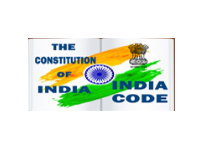The Government of India vide its resolution dated 7th September 1919 suspended the functioning of the Central Recruiting Board and at its place a new Board was established called the Indian Soldiers' Board to advise on matters affecting the interest of serving, discharged and deceased Indian Soldiers and non-combatants & their dependents. Due to steady expansion of the Navy and Air Force during the Second World War, the need for a single organization to perform the same functions in relation to all the three services was felt and the Board was consequently reconstituted in 1944. In March 1951, it was renamed as the Indian Soldiers’, Sailors’ and Airmen Board.
The designation of the Board was changed to the Kendriya Sainik Board at the Centre and Rajya Sainik Board and Zila Sainik Board at State and district level in 1975. The Board now functions under Dept of Ex-Servicemen Welfare in the Ministry of Defence as its attached office vide GoI Notification No. 10(02)/I/D (Res.)/2007 dated 29.01.2009 (PDF, 78 KB) The present composition of the Board as per Gazette Notification dated 15.02.2025 (PDF, 811 KB) ;comprises of President (Hon’ble RM), Vice President(Hon’ble RRM), Secretary (Secy KSB) and 46 members which include Chief Ministers/Lt Governors of various States/UTs, MPs, Service Chiefs, Govt. officials and Ex-Servicemen. The Secretariat of Kendriya Sainik Board is headed by a serving officer of the rank of Brigadier or equivalent from the Navy/Air Force.
Though welfare of the Ex-Servicemen and their dependents is the joint responsibility of the Centre and the States / UTs, majority of the problems have to be resolved only by the States / UTs. Like the Kendriya Sainik Board at the Centre, the Rajya / Zila Sainik Boards are responsible for policy formulation and implementation of resettlement and welfare schemes for Ex-Servicemen, widows and their dependents residing in their respective States / UTs / Districts. To assist the Central Government in this regard, there are 34 Rajya Sainik Boards and 410 Zila Sainik Boards in the country. The expenditure on establishment of RSBs & ZSBs is shared between the Centre and the States/UTs on 75:25 basis for the special category States/UTs (Arunachal Pradesh, Assam, Manipur, Meghalaya, Mizoram, Nagaland, Sikkim, Uttarakhand, Jammu & Kashmir, Ladakh and Himachal Pradesh) and 60:40 basis for rest of the States.
The Secretary KSB advises the Department of Sainik Welfare in the States / UTs on the policies for resettlement and welfare of Ex-Servicemen/widows and seeks reports from the Director, Department of Sainik Welfare / Secretary RSB and Zila Sainik Welfare Officer / Secretary ZSB, on implementation of policies and success in resettling Ex-Servicemen, widows, disabled personnel invalidated out from the Service and their dependents. Advice is also rendered on the welfare schemes required for the clientele, which are financed from funds allotted by the Governments of States / UTs and the Amalgamated Special Funds.
At the State level, the resettlement and welfare of Ex-Servicemen is handled by one of the Ministries in the State Govt. and the Secretary of the Deptt. concerned oversees the work of Deptt. of Sainik Welfare. The Deptts of Sainik Welfare exercise general control and supervision over the Zila Sainik Welfare Offices, some of which cover more than one revenue District. The Chief Minister of the State is the Chairman of the Rajya Sainik Board in the State and Collector is the Chairman of the Zila Sainik Board. The Secretaries to the Rajya Sainik Board are invariably the Directors of the Deptt. of Sainik Welfare and the Secretaries to the Zila Sainik Boards are the Zila Sainik Welfare Officers. The Zila Sainik Welfare Offices are established in districts which have population of 7,500 and above of Ex-Servicemen, widows, dependents and families of serving defence personnel left behind. However, in certain districts in remote/hilly areas, the population limitation of minimum of 7500 can be waived as stipulated in the rules.
Note: For further details, please visit KSB's website http://ksb.gov.in/



 पूर्व सैनिक कल्याण विभाग DEPARTMENT OF
पूर्व सैनिक कल्याण विभाग DEPARTMENT OF 












